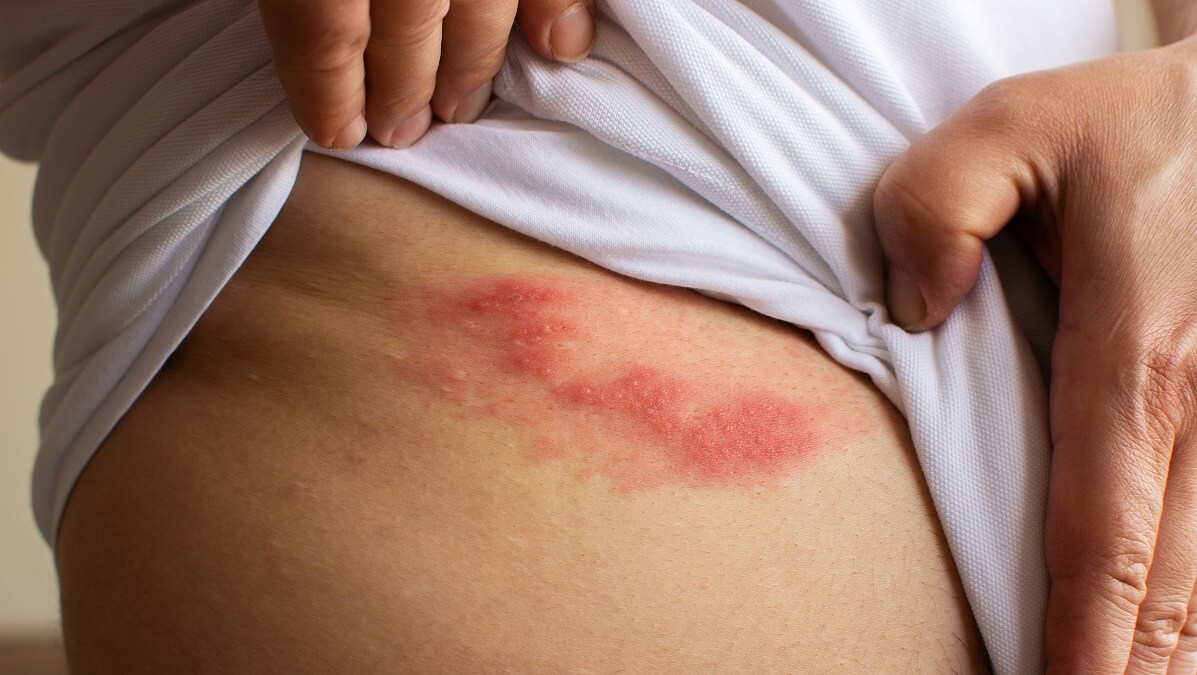I must admit to knowing very little about shingles.
That knowledge extends to being aware that it’s a reactivation of chicken pox which can be extremely painful. If you’re as ignorant on the matter as I’m, there’s good news – it’s Shingles Awareness Week.
To mark the occasion, biopharma company GSK Australia has commissioned new research, the results of which show at-risk Australians downplay that risk. And the reason for this is because many Aussies simply don’t realise they are in fact at risk.
GSK’s survey revealed that most Australians (86 per cent) underplay the risk. More than a quarter (26 per cent) believe that risk is as low as one in 100. And what is the correct figure for Australians over 50, not one in 100, but one in three!
So what exactly is shingles?
Despite my very limited knowledge of shingles, I now know that limited understanding was at least correct. Shingles is indeed a reactivation of the virus that causes chicken pox, known scientifically as varicella zoster. If you’ve never had chickenpox, you cannot contract shingles.
If and when varicella zoster is reactivated, it presents as shingles. I’d always wondered about the name ‘shingles’. I thought it might relate to rash marks being shaped like roof tiles. Not so. The shingles found on a roof derive from the Latin scandula, which means roof tile.
The disease shingles, however, gets its name from the Latin cingulum, meaning ‘girdle’. Why is it named after a girdle? Because in many cases, shingles presents as a rash around the waist, like a belt or girdle. (This corrects another of my misconceptions. I had always assumed shingles most commonly presented on the legs.)
Why does it reappear later in life?
Once you’ve had chickenpox (another lesson for me – chickenpox is a single word!) the virus can remain in your body. Your immune system then does a very good job of keeping it dormant.
But just as many other parts of our bodies decline over time, so does our immune system. This opens the door for varicella zoster to come back with a vengeance, this time as shingles. It’s like a super-villain from the past that’s reinvented themselves and comes back to haunt us.
The loss of immunity is the key here. So younger people with immunity, such as those receiving chemotherapy, can also have an elevated risk.
How painful is it?
I hope I’m never able to answer that question via personal experience. I somehow missed having chickenpox as a child and contracted it in my mid-30s. I have rarely felt sicker.
Someone who can share their personal experience is Deborah Knight.
A radio and television presenter for Nine, Ms Knight found out about shingles the hard way in 2022. “It started with intense pain in my lower back, followed by a rash with sensitive blisters on my face. Shortly after these symptoms began, I saw my doctor who confirmed I had shingles,” she said.
The severity of the symptoms came as a shock to Ms Knight. “I live a really active lifestyle, so it was confronting to need my husband and son to help me stand up due to the pain.”
And like me, Ms Knight, “didn’t know much about shingles and the impact it could have. I’d thought it was a disease that affected people much older than me.” Having learnt the hard way, Ms Knight is using her high profile to spread the word. She is now a campaign ambassador for Shingles Awareness Week.
What can I do to prevent shingles?
As to lowering your risk of contracting singles, there are vaccines available. These are available free of charge for Australians over 65, and First Nations people aged 50 years and over.
Others can get the vaccine at a cost. Based on the pain experienced by Ms Knight and others who’ve had shingles, it could be a cost worth paying. Next time you visit your GP, it might pay to ask them about your risks and options.
Have you had shingles? How would you describe the experience? Let us know via the comments section below.
Also read: New shingles vaccine free for older Aussies from tomorrow
Health disclaimer: This article contains general information about health issues and is not advice. For health advice, consult your medical practitioner.


I got shingles in 2016 at age 68. As stated above it was a very painful and unpleasant experience that lasted around 2 months and caused us to defer a holiday to Tasmania. In 2018 (must wait 2 years after contracting shingles) I had the vaccine.
The covid vaccines have been proven to re-activate the chicken pox/shingles virus.